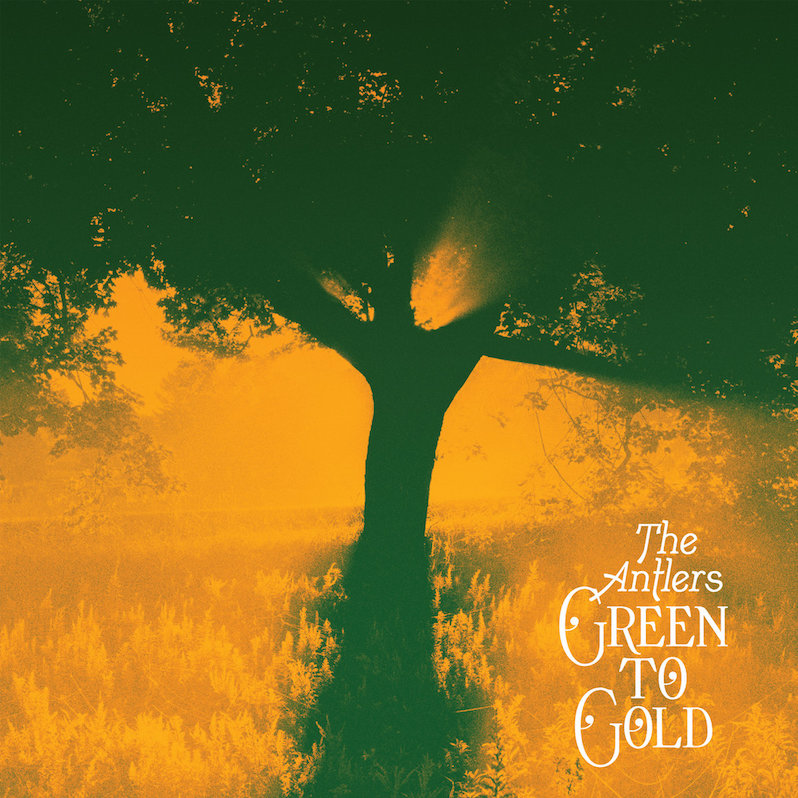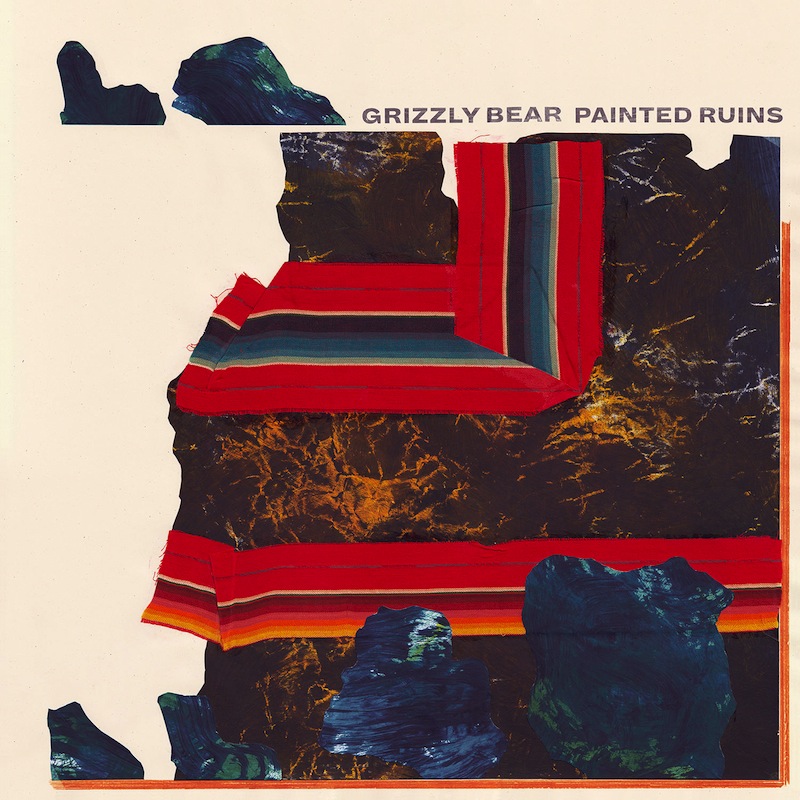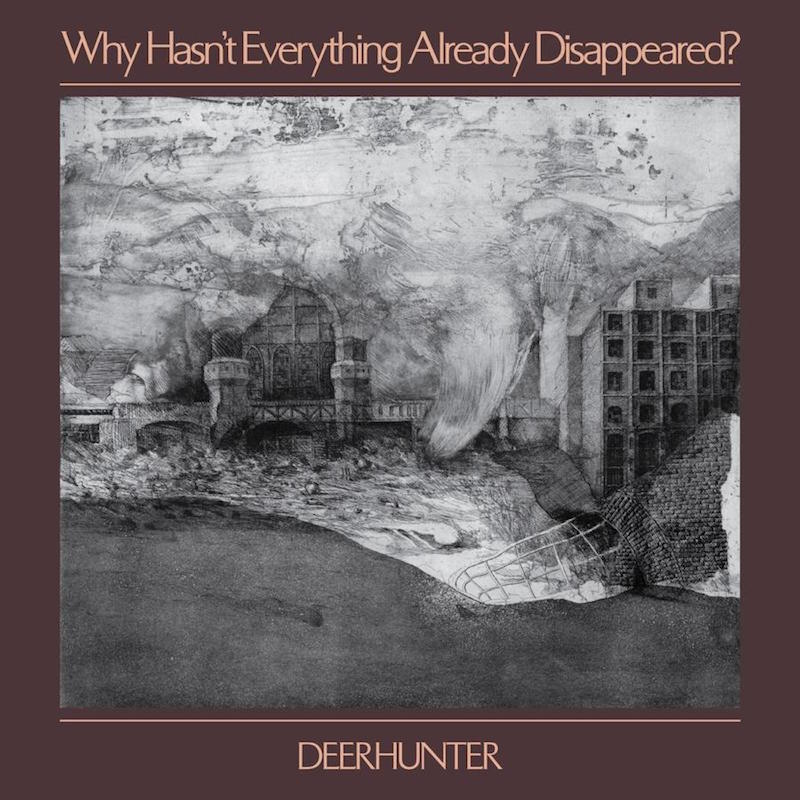The Antlers : Green to Gold

Every year, generally in the winter, deer shed their antlers. Soon afterward a new pair begins to grow: The budding antler begins as cartilage, which eventually calcifies into bone, and is covered in a velvety skin that supplies it with oxygen until it finishes developing, at which point the blood vessels and nerves inside die and the bony structure remains. In comparison, horns and tusks grow continuously throughout an animal’s lifespan—they are never shed, and are prone to permanent damage. But should anything happen to a pair of antlers, given time, they’ll come back anew.
The Antlers—the band—also exist in a cycle of rebirth. This is probably a necessity when your breakout album is Hospice: Singer-songwriter Peter Silberman’s reluctance to share just how autobiographical the record was led some fans to believe that Silberman actually did use to work in a cancer ward before entering into a psychologically abusive relationship with a dying patient. When we next heard from Silberman, on the lush, electronic-influenced Burst Apart, he was still working through the aftereffects of trauma, from opener “I Don’t Want Love” to teeth dreams, dead dogs and other loaded metaphors. It wasn’t until the following year’s Undersea EP and 2014’s Familiars that Silberman began to sound at ease, and the Antlers’ music reflected that, evolving into a warm and bright strain of space rock. “Maybe when I’m older / I’ll be clearer, more attuned and understanding,” Silberman sang on Familiars standout “Intruders,” coming across like someone was already much more attuned and understanding than when we’d first heard him.
Green to Gold, the first Antlers album in seven years, follows another period of change for Silberman, as well as convalescence. After being diagnosed with tinnitus and hyperacusis, Silberman moved to upstate New York and recorded Impermanence, a whisper of a solo album that sounded as fragile as its creator’s hearing. He later developed vocal cord lesions, requiring surgery and therapy to fix the issue. As he recovered from these maladies—either of which could have ended his career—Silberman weighed whether he wanted to return to music at all. It wasn’t until the Antlers (now a duo after the departure of multi-instrumentalist Darby Cicci) went on tour to mark Hospice’s 10th anniversary, the old songs taking new forms, that Silberman felt ready to commit to making another record.
True to its title, Green to Gold is the most autumnal and serene that Silberman has ever sounded in song. There are no allusions to abusive relationships or sexual frustration or terminal illness, and the most philosophical Silberman gets on death is a sighing “This is the first day our friend is free from pain / Voyaging on, while the rest of us remain” on the resigned “It Is What It Is.” Even when he’s pondering the passage of time, he sounds much less like he’s trying to stop it from slipping away from him than newly appreciative of even the smallest and quietest of moments. “Don’t go before you leave / Every second we got, we gotta make believe / That you’ll be right back” he offers on “Wheels Roll Home,” a plea that took on all the more resonance upon its release last October. Naturally, changing seasons also feature prominently on the lyric sheet, especially on “Solstice” and the patiently unfurling title track, all seven minutes of it.
Prior to Green to Gold’s release, Silberman described the album’s sound as “Sunday morning music,” and while nobody would mistake the Antlers for Saturday night music, their latest is indeed devoid of the eeriness or melancholy that’s haunted the corners of even their post-Burst Apart work. It’s still very recognizably an Antlers album, and despite Silberman’s hearing issues there’s a fullness in its sound that doesn’t tip over into loudness. If you can’t pick out the subtle violin and viola flourishes on “Solstice,” or the cello on “Stubborn Man,” you’ll definitely notice the banjo and slide guitar, courtesy of Bing & Ruth’s David Moore and Darkside’s Dave Harrington (!), on the country-tinged “Just One Sec.” On the very next track, “It Is What It Is,” Beirut and Father John Misty collaborator Kelly Pratt contributes no less than four instruments, including saxophone and flute, giving the song a rich chamber pop-inspired sound not too far off from Bon Iver’s eponymous record.
Silberman also claimed to take inspiration from “conversations with my friends and my partner” in writing Green to Gold’s lyrics. To whatever extent that’s true, the conversations he’s referring to sound more like the kind you’d have on a pleasant walk than those of the late-night, confessional variety, as Silberman’s lyrics invoke the first person noticeably less than on previous outings. The lower, less personal stakes may make it more difficult for fans to connect with these songs, or at least get as strong a response out of them, but to be honest, it’s a bit of a relief, given that the guy’s gone through a new hell seemingly every other album cycle. It wouldn’t be fair to ask him for something as emotionally annihilating as Hospice every time he returns to the studio. Besides, Silberman’s just not that person anymore. The two songs at the core of Green to Gold are the album’s most revealing, and they suggest that Silberman’s spent a lot of time in psychotherapy as well as sound therapy. “Stubborn Man” might read like an admission of Silberman’s worst qualities when he sings “I’m the only guy qualified / To fix me up and ossify,” but it’s also possible to hear that line as him owning them as opposed to succumbing to them. The clearest evidence of his growth since Hospice, and even Impermanence, comes on “Just One Sec,” about making peace with who you’re not and asking others to do the same. “By loving you imperfectly / For just one sec, I free you from me,” he coos in the song’s final lines before it seems to dissolve into ambience. In the past, Silberman would have used such a tone to convey tension or disorientation; here, it feels as warm and calming as a sunbeam.
Label: Transgressive/Anti-
Year: 2021
Similar Albums:
Jacob Nierenberg is a man of contrasts: a Pacific Northwesterner who carries an umbrella, a pacifist who enjoys the John Wick movies, an idealist who follows politics. Scarcely a day goes by that he doesn't talk with his best friend (and fellow Treble contributor) Tyler Dunston, the Jim Morrison to his Bernie Sanders.




